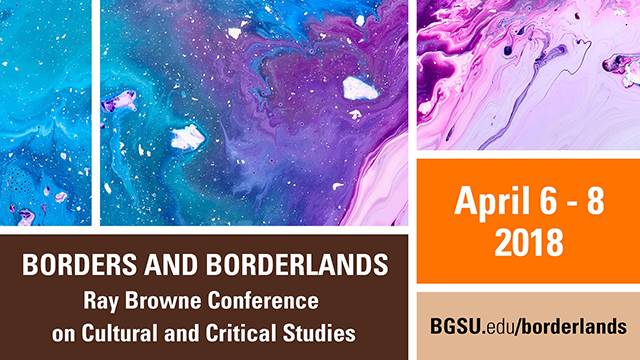
Concurrent Panel Session Eight
El Color de Las Yardas: The Mexican Working Class and Encounters with Color Hierarchies in Mexican South Chicago
Start Date
8-4-2018 10:00 AM
End Date
8-4-2018 10:50 AM
Abstract
This paper ethnographically and theoretically utilizes border theory to examine how the investigation into the dynamics of “color” is central for scholars documenting the everyday lives of Mexican working class communities in the United States. Specifically, I argue that “Color Inspections”—a twenty first century theoretical and practical metaphor to Alejandro Lugo’s “border inspections”—is helpful to understand subjectivities where a notion of being perceived and feel as a colored subject is central in Chicago, Illinois. Color hierarchies have been partly hidden by the material and discursive production of the nation-state, but color has remained a site of cultural production which has not been given the proper ethnographic description.
The paper is organized in three parts. The first looks at a material and discursive production of colorismo (Lugo 2008) in Mexican history by emphasizing its distinctive presence in the lives of Mexicans since the time of conquest, and as these people moved north to the City of Chicago. Here, I also theorize how border theory is useful to document the shifting terrains of color hierarchies. The second part theorizes how my participants encountered color hierarchies in South Chicago through those moments that I call “color inspections” as they worked as Mexican lawn care service workers. The third part provides a critical look at how color hierarchies allow for serious thinking about the Mexican immigrant condition within the United States. Overall, the paper in effect grounds “color inspections” as the current framework that better explains how color emerges as a structuring force in the lives of working class people in an apparent post-racial society and culture.
El Color de Las Yardas: The Mexican Working Class and Encounters with Color Hierarchies in Mexican South Chicago
This paper ethnographically and theoretically utilizes border theory to examine how the investigation into the dynamics of “color” is central for scholars documenting the everyday lives of Mexican working class communities in the United States. Specifically, I argue that “Color Inspections”—a twenty first century theoretical and practical metaphor to Alejandro Lugo’s “border inspections”—is helpful to understand subjectivities where a notion of being perceived and feel as a colored subject is central in Chicago, Illinois. Color hierarchies have been partly hidden by the material and discursive production of the nation-state, but color has remained a site of cultural production which has not been given the proper ethnographic description.
The paper is organized in three parts. The first looks at a material and discursive production of colorismo (Lugo 2008) in Mexican history by emphasizing its distinctive presence in the lives of Mexicans since the time of conquest, and as these people moved north to the City of Chicago. Here, I also theorize how border theory is useful to document the shifting terrains of color hierarchies. The second part theorizes how my participants encountered color hierarchies in South Chicago through those moments that I call “color inspections” as they worked as Mexican lawn care service workers. The third part provides a critical look at how color hierarchies allow for serious thinking about the Mexican immigrant condition within the United States. Overall, the paper in effect grounds “color inspections” as the current framework that better explains how color emerges as a structuring force in the lives of working class people in an apparent post-racial society and culture.

